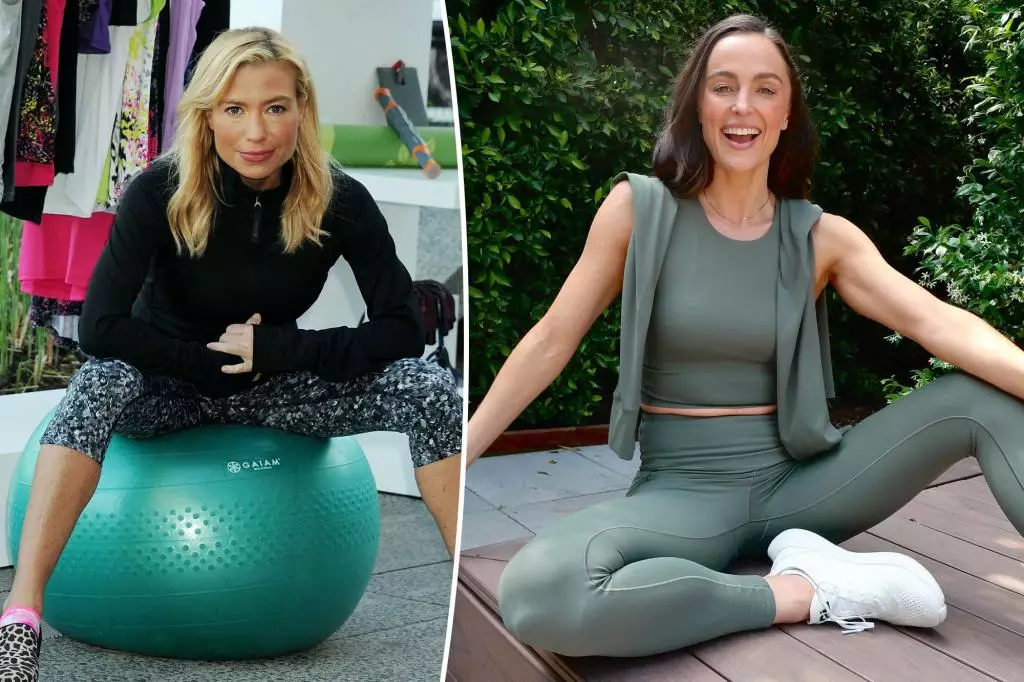The world of celebrity fitness is not only about sculpting bodies but also about legal battles. Recently, fitness icons Tracy Anderson and Megan Roup found themselves embroiled in a high-stakes lawsuit that has illuminated the darker side of personal training and choreography ownership. The legal conflict began in 2022, when Anderson, known for training A-list celebrities such as Gwyneth Paltrow and Jennifer Lopez, accused Roup of copyright infringement and breach of contract, alongside other allegations. Roup, a prominent trainer with a client roster that includes Miranda Kerr, defended herself vigorously—a struggle that highlights the fierce competition within the fitness industry.
In a recent turn of events, Anderson and Roup reached what was described as a “confidential settlement” regarding the breach of contract claims. While this appears to resolve some issues, it does not mark the end of the conflict. Anderson’s commitment to pursuing additional claims, particularly concerning her copyrighted choreography, indicates that the legal struggle may continue further up the judicial ladder. Anderson’s attorney, Gina Durham, expressed satisfaction over the contractual resolution but reaffirmed their intention to seek broader copyright protections in court. Thus, while one battle may be settled, the war for intellectual property rights rages on.
The legal arguments presented in this case underscore the complex relationship between creative expression and ownership rights in the fitness realm. Copyright laws are often contentious, particularly when choreography and training methods are scrutinized. Roup’s attorney, Nathaniel Bach, noted their success on multiple claims, including the dismissal of Anderson’s copyright infringement charges, further complicating the litigation landscape. The case is not just a battle of fitness influencers; it deals with the significant implications of how the legal system interprets ownership in uniquely choreographed movements that form the backbone of personal training programs.
This legal tussle, while specific to Anderson and Roup, serves as a cautionary tale for other fitness professionals. As the industry burgeons, trainers must be increasingly aware of intellectual property rights. The distinctions between influence and infringement can be razor-thin, prompting trainers to examine their own practices diligently. Innovation in choreography is essential for maintaining a competitive edge, yet the risk of legal repercussions looms large. For fitness professionals, understanding the nuanced landscape of copyrights and contracts has never been more essential.
While a settlement seems like a resolution, the rapid pace of change in legal interpretations and fitness methodologies ensures that the discussions surrounding ownership will continue. Anderson’s intention to appeal her dismissed copyright claim signals that more courtroom drama could be on the horizon. As the fitness world remains transfixed by such rivalries, one can’t help but wonder how this saga will influence future interactions between trainers and the essential copyrights that protect their creative works. The Anderson-Roup case exemplifies the intersection of fitness, fame, and legal challenges—a reality that many in the industry must now navigate.
